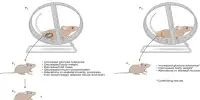People who have had the herpes virus at least once in their lives are twice as likely to acquire dementia as those who have never been affected. A new study from Uppsala University validates prior findings on whether herpes may be a risk factor for dementia.
Over a 15-year period, the researchers observed 1,000 Uppsala residents aged 70 and older. The study, which was just published in the Journal of Alzheimer’s Disease, discovered that those who had been infected with the herpes simplex virus at some point in their lives were twice as likely to acquire dementia as those who had never been infected.
The herpes simplex virus is quite widespread, and up to 80% of Swedish adults may be infected. The infection is lifelong, but symptoms might appear and go at various stages of life. Many people never have symptoms related to their infection.
What’s unique about this study is that the participants are roughly the same age, which makes the results even more reliable because age differences, which are otherwise associated with the development of dementia, cannot confuse the results.
Erika Vestin
“What’s unique about this study is that the participants are roughly the same age, which makes the results even more reliable because age differences, which are otherwise associated with the development of dementia, cannot confuse the results,” explains Erika Vestin, a medical student at Uppsala University.
Herpes simplex virus type 1 (HSV-1), which commonly causes cold sores or oral herpes, has been investigated for its potential role in increasing the risk of Alzheimer’s disease, a form of dementia. Some studies suggest that HSV-1 may contribute to the development of Alzheimer’s disease in certain individuals, though the exact mechanisms are still not fully understood.

Dementia affects 55 million people around the world. Carrying the apolipoprotein ε4 risk gene and being advanced in age are known risk factors. Previous research has looked into whether the herpes simplex virus could also be a risk factor for dementia, which has now been proven by this study. “It is encouraging that the findings support earlier research. More and more data is coming from studies, which, like our findings, indicate to the herpes simplex virus as a risk factor for dementia,” says Vestin.
The study’s key findings include the need for further research into whether existing medications against the herpes simplex virus can lessen the risk of dementia, as well as the prospect of producing new vaccinations. “The results may drive dementia research further towards treating the illness at an early stage using common anti-herpes virus drugs, or preventing the disease before it occurs,” Vestin said.
















